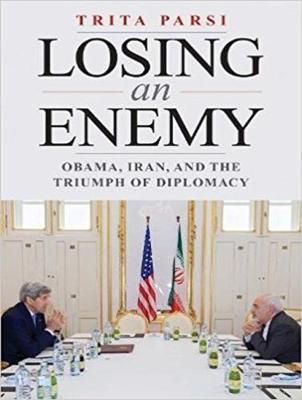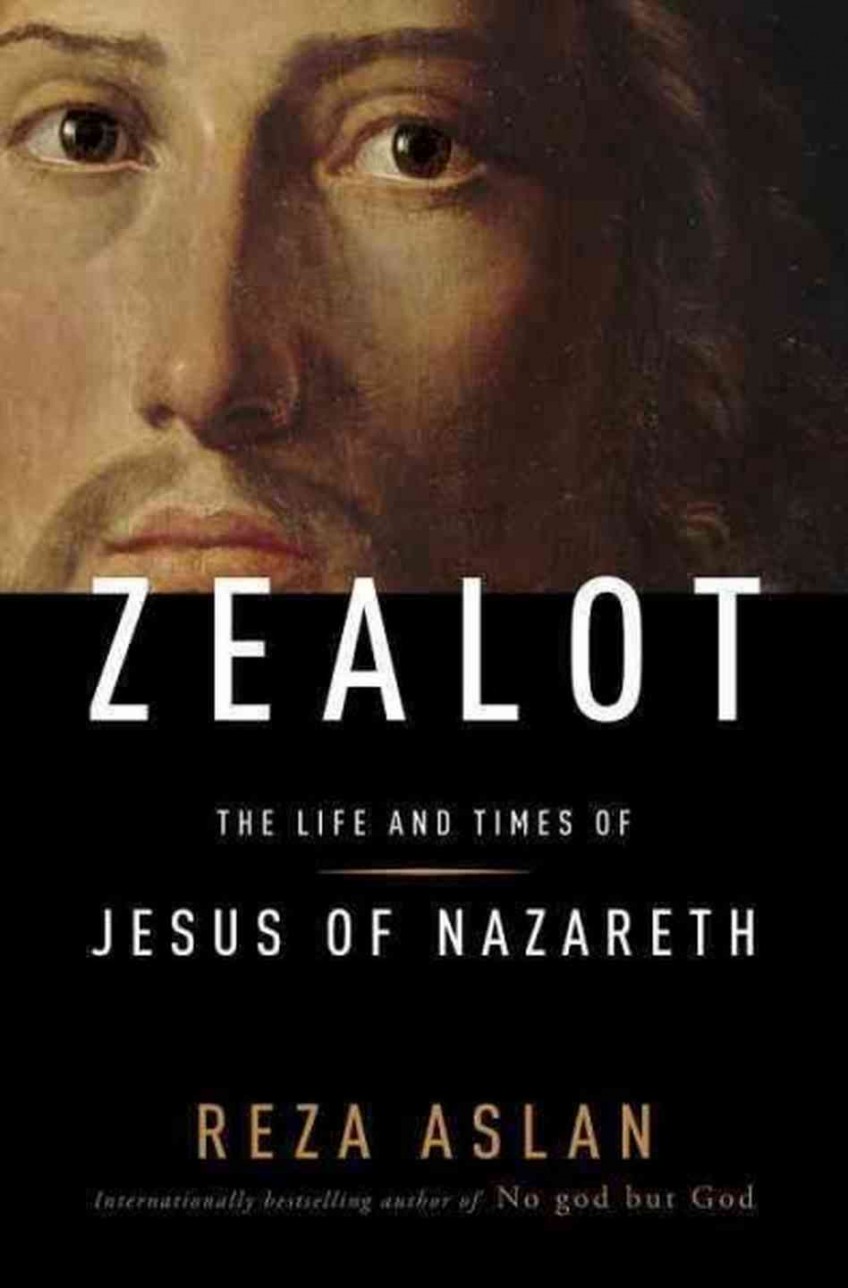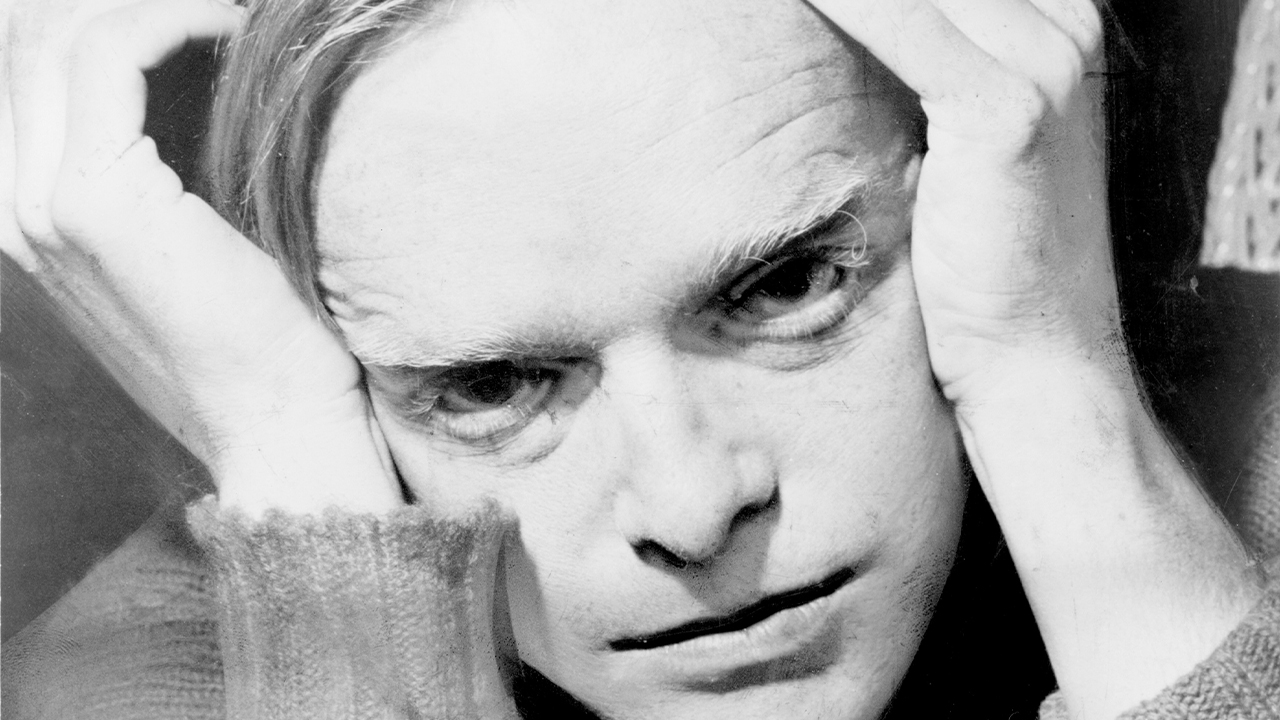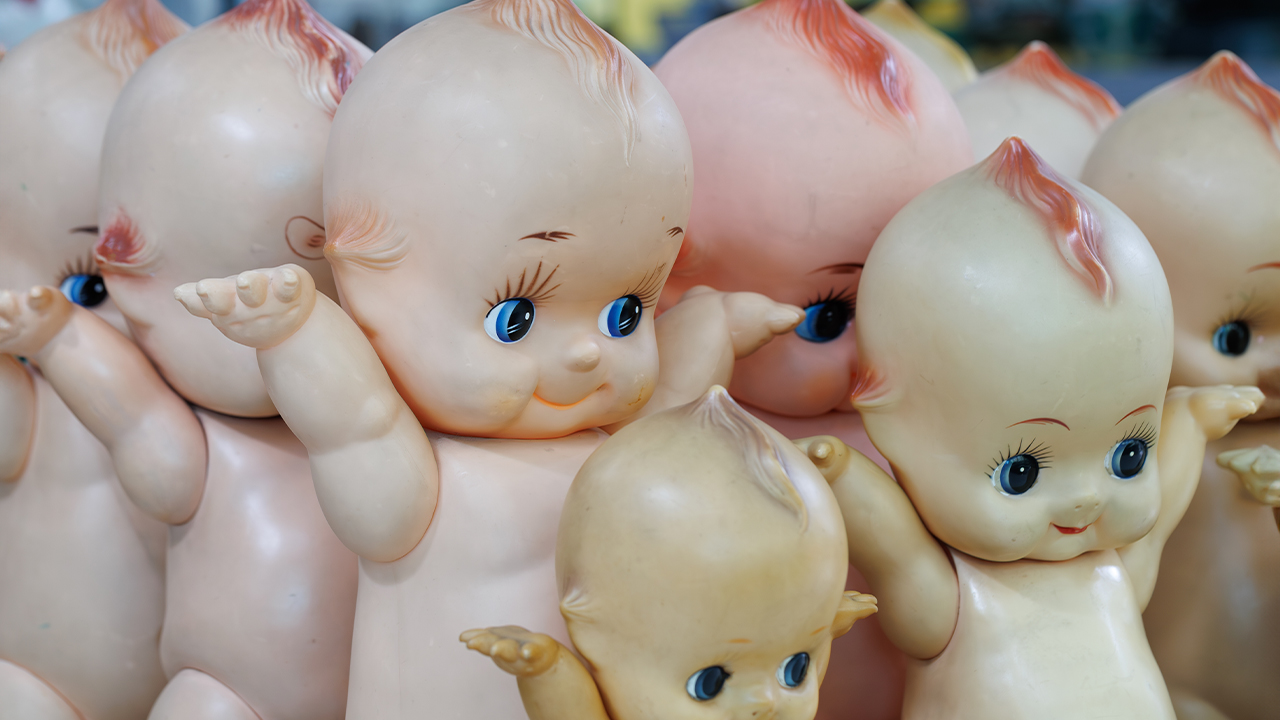The Two Francises and Finance
Christianity, money, and the Jewish temple story.
February 7, 2017

Christianity has had a troubled relationship with money from its very beginning. The shrines of the great Hellenistic religions were happy to accept monetary donations and provide space for the sale of ritual merchandise; after all, deities from Ephesian Artemis to Egyptian Serapis to Roman Jupiter were themselves featured prominently on coins. Even the Jews, whose God did not appear in numismatic form, expected an annual half-shekel temple tax from worshippers, as well as assorted food offerings and gifts, most of which might be purchased on the spot at the Jerusalem Temple. Not surprisingly, then, the Jerusalem Temple was also a mercantile center. If Jesus—as all four New Testament gospel accounts claim—expelled merchants and money-changers from that temple’s courtyard, his actions must have struck some contemporaries as less a case of separating the sacred from the profane and more as a case of trying to reveal internal corruption (“den of thieves”). In the Greco-Roman world, trying to take monetary operations out of a temple in order to “cleanse” it made no more sense than trying to take the credit-card readers out of the Apple Store in order to cleanse the Genius Bar.
The Jerusalem Temple was destroyed in 70 CE, about forty years after Jesus’ death—but Christianity’s antipathy to combining money and religion survived. While early Christians willingly donated money for charity, they frowned on using that same money to achieve religious power. An extended narrative in chapter 8 of the Acts of the Apostles, probably written toward the end of the first century of the Common Era, dramatizes this conflict: a wonderworker or magician named Simon is impressed by the marvels Christ’s apostles are able to perform, believes and is baptized, then—quite sensibly, from a Hellenistic perspective – offers the apostles Peter and John money, asking to share their ability to lay on hands and allow others to receive the Holy Spirit. Peter responds with outrage: “May your money perish with you, because you thought you could buy the gift of God with money!”
In the Greco-Roman world, trying to take monetary operations out of a temple in order to “cleanse” it made no more sense than trying to take the credit-card readers out of the Apple Store in order to cleanse the Genius Bar.
By the late second century, Christian writers regularly distinguished what they saw as their non-negotiable faith from the pay-to-play model of other Hellenistic religions. Writing his Ad Nationes around 197, the North African writer Tertullian refuted charges of Christian impiety by pointing out pagan religion’s close dealings with money: “How you are declining in your religious observance! You retain your household gods, the Lares and Penates, by personal oath, and yet you trample them under foot, selling and pawning them to meet each passing whim.” However, Tertullian continues, pagans treat their “public gods” even worse:
First of all, you offer your gods up for public auction. Every five years you put them up for sale among your other revenues. Thus you conduct business at the temple of Serapis and the temple of Jupiter. Then your gods themselves are brought in for barter at the bidding of the auctioneer, at the direction of the magistrate…. The majesty of the sacred is prostituted for profit. Religion itself is put up for sale. The sacred offers itself up for the highest bidder. You collect revenues from the temple grounds, from the entrance way, from the offertory, from the sacrifices. The divine itself is up for sale. Religion cannot be practiced free of charge.
Christianity, according to Tertullian, was superior to other Hellenistic religions not because it eschewed idols—the same could be said for Judaism—but because its God and its benefits were not up for sale. Christian teaching was, literally, priceless.
• • •
Since Jorge Mario Bergoglio became Pope Francis in March 2013, he has spoken out against the “idolatry of money” in terms that would warm Tertullian’s heart. On November 24, in his first major papal statement, an apostolic exhortation entitled Evangelii Gaudium (“The Joy of the Gospel”), Pope Francis condemned the “economy of exclusion and equality” in which “human beings are themselves considered consumer goods to be used and then discarded” while “we end up being incapabale of feeling compassion at the outcry of the poor.” Then Francis traced this situation to the creation of “new idols.” Citing the Biblical Israelites’ mistaken worship of the golden calf—a more familiar precedent for his audience than Serapis and Jupiter—he insisted that idol worship “has returned in a new and ruthless guise in the idolatry of money and the dictatorship of an impersonal economy lacking a truly human purpose. … a deified market, which become[s] the only rule.” But where Tertullian criticized pagans for their impiety, Francis criticized Christians: “Behind this attitude lurks a rejection of ethics and a rejection of God. … [E]thics leads to a God who calls for a committed response which is outside the categories of the marketplace.” For Francis, this “marketplace” and the Christian God are fundamentally opposed to one another.
Evangelii Gaudium’s mention of idolatry was not an isolated turn of phrase: Pope Francis has returned to this theme in many other speeches over the past three years. As early as June 2013, he stated in a Mass homily that “wealth is an idol,” and on a September 2013 trip to Cagliara, Italy, he attributed high unemployment and suffering to “this system devoid of ethics, [where] at the center there is an idol and the world has become an idolater of this ‘god-money.’” During a September 2014 trip to Albania, he urged his listeners to “say ‘no’ to the idolatry of money.” In a Mass homily in June 2015, he equated the “attachment to riches” with idolatry, and during a July 2015 trip to South America, he urged Bolivian listeners “not to yield to an economic model which is idolatrous, which needs to sacrifice human lives on the altar of money and profit” and to avoid “the idolatry of money and the dictatorship of an impersonal economy lacking a truly human purpose.” In an October 2015 homily, he emphasized the importance of almsgiving as a counter to “this idolatry, the attachment to wealth.” In July 2016, he credited the Apostle Paul’s Letter to the Colossians with “warn[ing] that greed for weath and influence is idolatry.” Most recently, in August 2016, the Pope used an in-flight press conference to link terrorism to the idolatry of money, saying that “terrorism grows when there is no other option, and to the extent the world economy has at its center the god of money and not the person.”
Christianity, according to Tertullian, was superior to other Hellenistic religions not because it eschewed idols—the same could be said for Judaism—but because its God and its benefits were not up for sale. Christian teaching was, literally, priceless.
The dichotomies of Evangelii Gaudium become even clearer here, as the “deified market” turns into a rival religious establishment, complete with not merely idols but altars, sacrifices, and the “god of money.” Even when he does not use the language of idolatry, Pope Francis often implies that the attachment to money leads not only to corruption but also to some sort of doctrinal error: in May 2015, he explained that “those who live attached to their own power, their own wealth, they believe they’re in heaven. … Riches have the ability to seduce, to take us to a seduction and make us believe that we are in a paradise on earth.” Meanwhile, true Christian faith should be supported by charity, the only religiously supportable role for money. As Francis noted in July 2015, “this is a golden rule: when faith does not come with pockets, not a genuine faith.”
Indeed, Francis has put his own pockets—and his church’s—where his mouth is. As modern popes go, he is quite amazingly unattached to money: he lives in a one-bedroom Vatican guesthouse suite, eats many meals at the buffet there, and wears a plain white cassock with a cross on most occasions; he has also hired new experts—from both inside and outside the Catholic hierarchy—to clean up the Church’s finances so that they could donate more to charity. Earlier this year, the Pope announced he will reject donations from donors or businesses that exploit, mistreat, or underpay their workers, stating that “the people of God—that is, the Church—don’t need dirty money. They need hearts that are open to God’s mercy.” And then, of course, there is his focus on serving the poor, most notably exemplified in his choice to take “Francis” as his papal name. As Pope Francis explained in his first Vatican audience, he chose that name in mid-election, when a fellow cardinal turned to him and urged, “don’t forget the poor.” The new pope-elect thought immediately of Francis of Assisi as “the man of poverty, the man of peace, the man who loves and looks after what has been created … the man who gives us the spirit of peace, the poor man, like a poor church for the poor.”
• • •
Francis of Assisi–Saint Francis within three years of his death in 1226–was not born a poor man. His father, Pietro di Bernardone, was both a successful silk merchant and an indulgent parent. Although the young Francis evaded most of the education his father sought to give him, he cheerfully accepted fine silk clothing and a generous monetary allowance, which he shared with a group of friends coming mostly from Assisi’s nobility. When Francis announced that he wanted to be a knight, Pietro bought him a horse and battle-armor not once but twice: the first time, when Francis rode out with his noble friends to a battle between the commune of Assisi and neighboring Perugia, his horse and finery saved his life, because he was imprisoned and ransomed along with the nobles, not killed like most of Assisi’s citizen militia. The second time, with even more gear, Francis first traded his fine armor for the set of a poor knight whom he felt sorry for, then fell ill and decided to return to Assisi. Pietro hoped Francis would finally settle down and join the family business, but it turned out that the young man was experiencing dreams and visions from God.
Even when he does not use the language of idolatry, Pope Francis often implies that the attachment to money leads not only to corruption but also to some sort of doctrinal error.
Within a year, Francis had sold his horse and a significant amount of fabric from his father’s store in an attempt to help repair a crumbling church outside the city walls: when the church’s priest refused to accept this money, Francis simply left it on a windowsill. Pietro concluded Francis was a lunatic and tried to imprison him at home, but Francis’s mother let him out, and he returned to the church. Next Pietro tried legal proceedings: he brought his son before Bishop Guido of Assisi demanding the return of his possessions, and the bishop backed him up, telling Francis to return everything that belonged to his father. Francis complied, but not in the way his father expected: he returned everything, including the clothes on his back, renounced his inheritance, and declared God to be his only father. Taking Christ’s advice to his apostles in Matthew 10 as literally as possible, Francis soon refused to own more than one poor set of clothes, or to keep more than one meal’s worth of food, or to accept money in any form. Eventually, a community of like-minded men and women formed around him, attracted by Francis’ total commitment to poverty and by his message that poverty offered a way of imitating the life of Christ and his apostles.
But Francis’ aversion to money went beyond mere commitment to poverty. The earliest surviving rule Francis wrote for his community (c. 1221) specified that “none of the brothers, wherever he may be or go, [may] carry, receive, or have received coin or money, whether for clothing, books, or payment for some work—indeed, not for any reason, unless for an evident need of the sick brothers, because we should not think of coin of money having any greater usefulness than stones. The devil wants to blind those who desire or consider it better than stones.”[1] Should a brother turn out to have concealed a stash of money or coins, Francis continued, “let all the brothers consider him a deceptive brother, an apostate, a thief, a robber, and as the one who held the money bag [i.e., Judas, the betrayer of Jesus], unless he has sincerely repented.” This, it turned out, was Francis’ one departure from the apostolic model: although Judas had held the money bag for Jesus and the apostles, nobody was allowed to hold a money bag within the Franciscan Order, at least while Francis was in charge.
Thomas of Celano, writing his second Life of St. Francis around 1246, collected accounts from other early biographers about Saint Francis’s distaste for money—episodes which make Pope Francis’s references to “dirty money” seem remarkably mild. In one episode, one of Saint Francis’ “brothers” picked up a coin on the road despite being reminded of Francis’ teachings on the matter and was immediately struck dumb until he threw away “the stinking thing.” Another episode describes Francis rebuking another brother for touching a bag of donated coins in order to move it out of the church they had repaired: Francis told the other man to pick up the money with his mouth and drop it on the donkey’s manure pile outside. “From then on,” Celano adds, “all of them held in even greater contempt what had been so equated with dung and were encouraged to despise it by new examples every day.” In yet another story, Francis and his traveling companion encountered a bulging money-belt in the road: the companion urged Francis to pick up the belt and donate its money to the poor, but Francis suspected a diabolical trick, and eventually ordered the companion to pick it up and see for himself. A large snake promptly slithered out of the belt, then both snake and belt disappeared. “To God’s servants,” Francis told his companion triumphantly, “money is nothing but a devil and a poisonous snake.”
• • •
Although Francis of Assisi went farther than most of his contemporaries, he was not unique in his anxiety about money. As the economy of Western Europe moved gradually toward a fully profit-based economy, money took on new significance: by the end of the 12th century, coins had became part of almost every transaction in ways that would have been impossible 200 years earlier. The easy mobility of money-driven wealth paved the way for new towns, new forms of artisanship, and a new mercantile middle class–men such as Pietro di Bernardone. But 11th- and 12th-century Christians also found the new presence of money troubling. They began worrying about priests committing simony, the newly invented “sin” of taking money for ecclesiastical preferment, which was named after Simon Magus. Avarice and cupidity began to take over from pride as the worst of the deadly sins. Pious Christian of the twelfth century did not read Tertullian, but many of them read the Life of St. Alexis, a Greek story that had only reached Western Europe in the 10th century: it told of a supposedly 5th-century saint, born into a wealthy family, who renounced everything on his wedding day and spent the rest of his life living as a beggar. The new mercantile middle class was also targeted: canon-law collections of the eleventh and twelfth centuries repeated the claim that merchants were “rarely or never able to please God.” Some Christians formed new monastic orders in remote locations, trying to get away from urban life and its seductive cascade of coinage. Some of them formed new religious communities aimed at countering mercantilism in the cities themselves, and in 1209 the Franciscans joined that trend, becoming the first “mendicant” or begging order.
Some Christians also began to associate Jews with money and moneylending, and not in a positive way. Jewish communities that had existed since Roman times in Italy, southern France, and the Iberian Peninsula were now expanding north, east, and even west into England, and these new communities consisted mostly of merchants and artisans in urban settlements. Both Jews and Christians lent money at varying rates of interest, but given Christian ambivalence about money, it is no wonder that Christians preferred to think of the typical moneylender as Jewish, and that the negative qualities of money and moneylending (“usury”) came to be associated with Jews. One appealing, if unprovable, theory is that medieval Christians projected their own anxieties about money onto their Jewish neighbors, accusing Jews of increasingly outlandish crimes such as host desecration or blood libel, then periodically attacking or expelling Jewish communities for these imagined crimes (a tactic that conveniently canceled a great deal of Christian indebtedness).
All Francis’s antagonism about money is aimed first at his father, then at the coins themselves. The coins—not, for a change, the Jews—are foul-smelling, diabolical traps for unwary Christians. Somehow, either Francis of Assisi or his early biographers managed to steer completely clear of anti-Jewish prejudice by steering clear of Jews.
At any rate, by the end of the 12th century, Jews had become firmly linked with the worst abuses of money in the Christian imagination. One might expect a Christian with a particular interest in the diabolically corrupting power of money to somehow engage with Jews—perhaps as antagonists, perhaps as potential converts. But one of the strangest things about the exceptionally well-documented life of Francis of Assisi is that, in all his wanderings across central Italy, as well as travels to Rome and Egypt, he is never once described as encountering a Jew. There were certainly Jewish communities near him—not in Assisi at that time, but certainly in Perugia, and in many of the other cities Francis and his companions passed through. By sheer force of probability, one would expect that the future Saint Francis must have met a Jew or two, yet his many early biographers remain resolutely silent. All Francis’s antagonism about money is aimed first at his father, then at the coins themselves. The coins—not, for a change, the Jews—are foul-smelling, diabolical traps for unwary Christians. Somehow, either Francis of Assisi or his early biographers managed to steer completely clear of anti-Jewish prejudice by steering clear of Jews.
• • •
Pope Francis has not steered clear of Jews: instead, he has reached out to Jewish communities, both in Argentina before his elevation to the papacy, and around the world since 2013. He has reached out in unprecedented ways to Muslims and to Orthodox Christians as well, and earlier this year attended an interfaith World Day of Prayer celebration held (quite deliberately) in Assisi, where Pope John Paul II had organized the first such event in 1986. But Pope Francis has also channeled Saint Francis in less peaceful ways when it comes to money, even going so far as to refer to money as “the devil’s dung” as well as “an idol” in a March 2015 meeting where he condemned unfair employment practices and touted the advantages of workers’ cooperatives.
We cannot say whether or not Saint Francis gave any thought to how his diatribes against money might or might not rebound on Jewish communities near him; certainly, some later Franciscans, including the famous preacher Bernardino of Siena (1380-1444), did not hesitate to combine Francis’s condemnation of monetary dealings with calls for local Jewish communities to be isolated or expelled. However, Pope Francis walks a much finer line, because “idolatry” is no longer the first or even the second rival faith people think about when they are considering alternatives to Christianity. In a 2013 homily, in fact, Pope Francis went to some trouble to point out that his references to idolatry are calling out intra-Christian failings, not actual non-Christian idol-worshippers: “Even today, there are so many idols, and even today there are so many idolaters, so many who think they are wise. But even among us, among Christians, eh? I’m not speaking about them, I respect them, those who aren’t Christians. But among us—we’re speaking within the family—they think they’re wise, they know everything. … We all have within ourselves some hidden idol. We can ask ourselves, in the sight of God: what is my hidden idol? What takes the place of God?”
Again and again, Pope Francis stresses that he is using his anti-commercial message about the idolatry of money to critique Christians, and perhaps specifically Catholics. He reserves a special outrage for the cases where attachment to money impedes religious observance, taking advantage of a lectionary in which Jesus cleanses the Temple multiple times each year, but he always moves the action from Temple to Church. In a May 2015 homily on one such reading, he reflected that “the people who went on a pilgrimage there [to the Temple] to implore the blessing of our Lord, to make a sacrifice: Those people there were exploited! The priests were not teaching them to pray or giving them a catechesis… it was a den of thieves. … Maybe we’d do well to reflect on whether we encounter similar things going on in some places. It’s using God’s things for our own profit.” Another Temple-cleansing homily, from November 2014, asks the obvious question, “Why does Jesus have an issue with money? Because redemption is free; it is God’s free gift, He comes to brings us the all-encompassing gratuity of God’s love. So when the Church or churches start doing business, then it is said that … salvation is not so free. … This is why Jesus takes the whip to hand to carry out this act of the purification of the Temple.”
In many addresses on Jewish-Christian relations, Francis has stressed the importance of viewing Jesus in his original Jewish context, but for this one particular narrative the New Testament is carefully decontextualized. The story of Jesus cleansing the Temple is only about the Church; the idolatry of money is therefore a problem only for the Church.
Reading through Pope Francis’ many homilies on the temple-cleansing story, one begins to suspect that the Temple and its money-obsessed priests are very carefully not Jewish in much the same way Francis of Assisi never met a Jew. In a November 2015 homily, Francis pointed out that “there is always a danger of corruption within the Church. This happens when the Church, instead of being devoted to faith in Our Lord, in the Prince of Peace, in joy, in salvation, becomes dominated by money and power. This is exactly what happens here, in this Gospel reading. These priests, chief priests and scribes were driven by money, power and they ignored the Holy Spirit.” And in a December 2015 homily, he stressed that Christians should fight against “a Church that is attached to money, that thinks of money, that thinks of how to earn money. … This is not the Church of Jesus; this is the Church of these chief priests, attached to money.” In many addresses on Jewish-Christian relations, Francis has stressed the importance of viewing Jesus in his original Jewish context, but for this one particular narrative the New Testament is carefully decontextualized. The story of Jesus cleansing the Temple is only about the Church; the idolatry of money is therefore a problem only for the Church.
An attentive reader might begin to wonder whether “idolatry” became one of Pope Francis’ favorite metaphors for attachment to money because of how neatly it excludes Judaism from that particular conversation. After all, Francis has argued since Evangelium gaudii that Jews are precisely not the people who need to worry about idolatry: they already share a God with Christians. “As Christians, we cannot consider Judaism as a foreign religion,” he wrote in that document, “nor do we include the Jews among those called to turn from idols and to serve the true God.” If money is a problem for Christians, both Francises suggest, the solution is to keep it problematic for Christians and not for anyone else. The Christian community Pope Francis hopes to inspire has—at least figuratively—nobody holding the money bag.
And what about the Jews? The many miracles Thomas of Celano attributed to Saint Francis shortly after his death continue to be free of Jews, but there is a single exception: when an unattended child drowns while his father and grandfather work to build a new Franciscan church in Capua, “the Jews who had come, moved by natural piety” join in the community’s prayerful appeal to Saint Francis, and the child is miraculously resurrected. Perhaps the least expected legacy of Francis of Assisi is the one Pope Francis has clearly put into action: that Christians should pray together with Jews but keep their money matters entirely separate.
[1] Translations from the writings of Francis of Assisi and Thomas of Celano are taken from the first two volumes of the Francis of Assisi: Early Documents series edited by Regis J. Armstrong, J.A. Wayne Hellmann, and William Short (New City Press, 1999).





